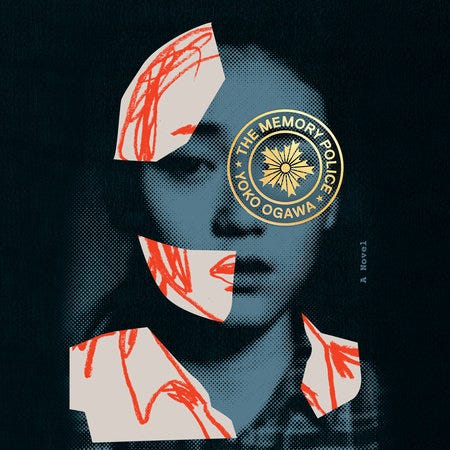Last gasp: The Sunday night reader for 5/9/21
Infrastructure as memorial, Rush Limbaugh's ghost, and Yoko Ogawa's The Memory Police
Why we need a COVID-19 memorial and a national commitment to public health funding as infrastructure
By Champaign-Urbana’s own Leslie Reagan in a Chicago Tribune op-ed. “The U.S. has memorials honoring its war dead. In many ways, those memorials also remind the country to prepare for enemies and to publicly fund the nation’s defense. Perhaps the memorial we now need is one that honors the dead and reminds us to prepare for future epidemics by funding public health — with public dollars.
Honoring those who gave their lives for others, preserving historical memory and maintaining the public’s health are the infrastructure of a humane and just society.” Read more.
Great Limbaugh’s Ghost
By me. “Discussing Rush as if he is alive is an admission that listeners were suspending disbelief all along — believing lies because they are comforting. It's also an admission that these vile, destructive ‘news’ programs run on radio stations around the country because they are huge money makers, not because they are a productive or reality-based analysis of the world.
Nobody had to pretend the Tupac hologram at Coachella was alive in order to make money off of his memory. Not true of Rush and his lies from beyond the grave.” Read more.
It’s not a ‘labor shortage.’ It’s a great reassessment of work in America.
This might be particularly interesting to me as someone who announced he was quitting his job the same week that work from home started in March 2020, but it’s a helpful analysis of last week’s job numbers, regardless.
By Heather Long. “There is growing evidence — both anecdotal and in surveys — that a lot of people want to do something different with their lives than they did before the pandemic. The coronavirus outbreak has had a dramatic psychological effect on workers, and people are reassessing what they want to do and how they want to work, whether in an office, at home or some hybrid combination…[T]he types of jobs in the economy are changing and workers are taking awhile to figure out what new jobs they want — or what skills they need for different roles.” Read more.
There wasn’t a Thursday email this week. I’m going to experiment with a single, Sunday email. It will include a new piece from me every week, as well as other people’s stories. Share it and help me get a handle on what approach people like best. Or give me your thoughts about the newsletter in the comments.
The Memory Police
In Yoko Ogawa’s “The Memory Police,” items are disappeared and dutifully forgotten. Some are integral to life, others incidental. A few people hang on to memories of things like ferry boats or sharp, citrus candies. They hide out or are spirited away by shock troops in green coats. Even with its hazy narrative, the book clarifies the acquiescence that authoritarianism requires. Throughout, voices are lost to routine. Secretarial students are silenced by their typewriters. Servants go mute as they polish the silver.
It becomes clear that the forgetting isn’t imposed — no magic or technology is involved. There’s nothing special about those who remember, nor those who forget. Instead, most simply agree to the proposition. They pour their perfume into the river and don’t think of it again after the scent has vanished downstream. They know they’ll miss it, and then they don’t.
The novel’s English translation was published in America a couple of years ago, and it’s jarring to think that it was written in 1994. How would it have landed 25 years ago? What have I learned and forgotten? What elephants have I swallowed?
“The [music box] exists without any doubt right in front of us,” the narrator says. “The music continues to play, before the disappearance and after. It plays on faithfully, as long as the key is wound. That’s its role, now and forever. The only thing that’s different is the hearts of those who once heard it.”
Say it plain…











